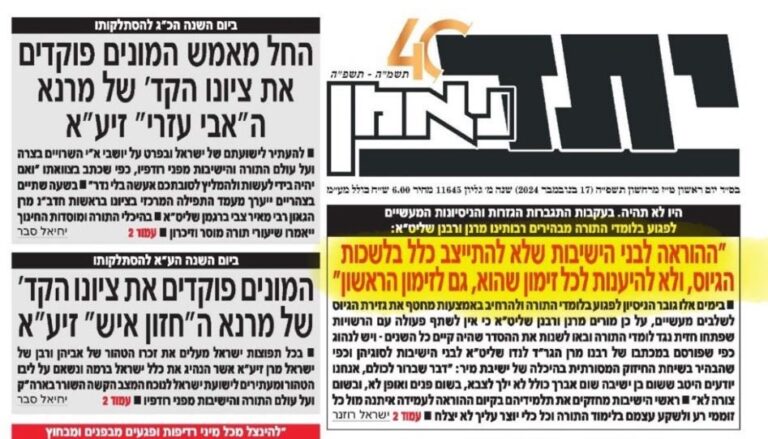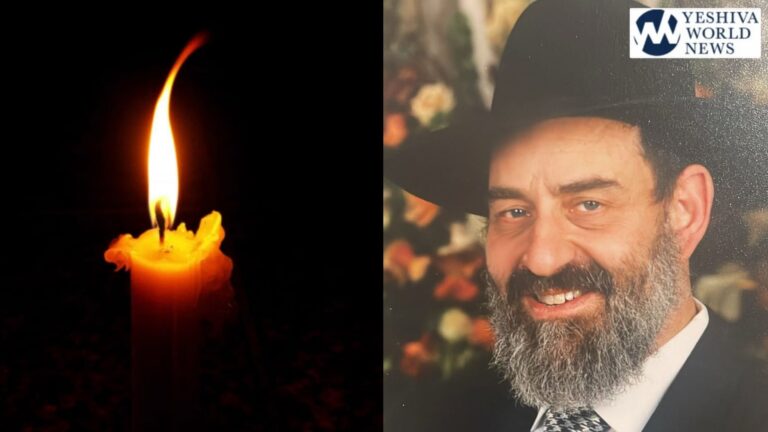 By Rabbi Yair Hoffman for the Five Towns Jewish Times
By Rabbi Yair Hoffman for the Five Towns Jewish Times
We find the concept of “hefsed merubah – a huge loss” as a factor sometimes in deciding whether or not to rely on a lenient opinion. But how much exactly is a huge loss? What is it for a wealthy person and what is it for a poor person? All this and more can be found in the new sefer Psakim uTeshuvos (that one on page 161).
But first, let’s give ourselves an introduction.
Perhaps it all started with the Pischei Teshuvah on Yoreh Deah, written by Rav Avraham Tzvi Eisenstat (1812-1868). Rav Eisenstat copiously and meticulously collected the thoughts and rulings of Klal Yisroel’s Gedolim on the Shulchan Aruch. It is a remarkable work that is still used to this day and it is printed on the bottom of the page of every modern Shulchan Aruch.
In recent years, the task of collecting the rulings of the Gedolei haPoskim of modern times on the rulings of the Shulchan Aruch on Orech Chaim was taken up in the Sefer entitled, “Piskei Teshuvos” by Rav Pinchas Ben Tzion Isaac Rabbinowitz, now Rav of Mishkenos Yaakov in Ramat Shlomo, Yerushalayim.
The many volume work is a halachic classic in the author’s lifetime, a rarity indeed. Every Rav in America and throughout the world uses this remarkable brown-covered work to help navigate modern shailos and to find the thoughts and rulings of the Gedolei HaPoskim. True, some take serious issue with a few of Rav Rabbinowitz’s conclusions (especially of his view permitting the lighting of Chanukah candles at a wedding hall), but by and large, all view his work as path-breaking.
Now, however, a new Sefer has emerged which is similar in scope to the Piskei Teshuvos of Rav Rabbinowitz. This Sefer is on Yoreh Deah, not Orech Chaim, and has the same color cover and the same type-setting, but a different author. It has a slightly different name – Psakim uTeshuvos. It is written by Rav Rabbinowitz’s son-in-law, Rav Aharon Aryeh haKohen Katz Shlita – at the instigation of his father-in-law.
It is an incredible work, and this author has no doubt that the Rabbonim and Talmidei Chachomim will cause this sefer to be sold-out quite soon.
The volume covers 27 simanim in Yore Deah from SIman 240 to Siman 266. This includes Kivud Av v’Aim, cursing parents r”l, honoring one’s Rebbe, Klalei haPsak, Honoring a Talmid Chochom, standing up for a zakain, the laws of Melamdim, the laws of Talmud Torah, the laws of Tzedakah, and Bris Milah.
He deals with such questions as, must one listen to parents in matters that do not directly involve the parent, but stresses them out? Specifically, must one listen if a parent tells his son to go to bed earlier – much earlier than others do, for no logical reason? He cites Shaivet HaLevi Vol. X #156 who rules that one must listen while in front of parents – even on something that has no logical reason, but he leaves it with a question as Rav Vosner writes very little on it.
In the laws of honoring Rabbonim, he writes that the Rabbi should not delay responding not only in regard to Dinei Torah but also in regard to other halachic questions (page 117).
There is a halacha of standing up for anyone that is age 70 or up (the Arizal holds 60 and up). What if one is unsure whether the person is 70 or not? The sefer cites an army of acharonim that hold one must be stringent and stand.
What about a siyum? is it preferable to do it with bread, fish and meat? The answer is yes (page 333).
There are two equal mohelim – one is a kohain. Does he receive precedence over the other? Yes he does (page 549), but not if one is more qualified than him, or if he is agreater tzaddik.
All this and much more can be found in this new sefer. The Sefer is available at Biegeleisen Seforim Store in Borough Park and at other fine seforim stores.
The reviewer can be reached at [email protected]










